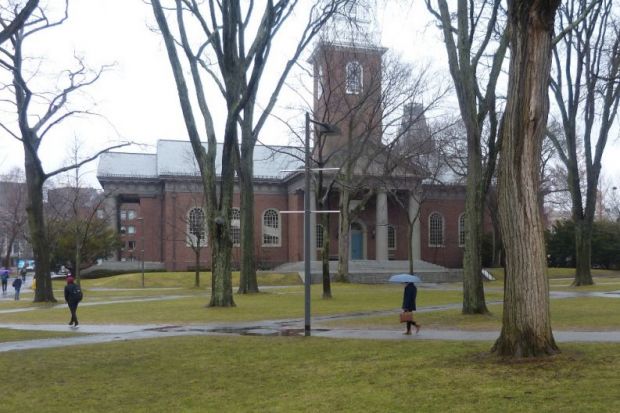Former Harvard University nanoscientist Charles Lieber, battling an incurable cancer, was spared prison after his conviction on charges related to his unreported partnerships with the Chinese government.
In one of the highest-profile cases arising from a Trump administration crackdown on academic research ties with China, Professor Lieber was sentenced by US District Judge Rya Zobel in Boston to two days in prison, which he already served after his arrest on the Harvard campus in January 2020.
With his wife and colleagues in the courtroom, Professor Lieber also was ordered to serve a half year of house arrest, and pay $50,000 (£40,000) in fines and $33,600 in restitution to the IRS.
The former chairman of Harvard’s chemistry department was one among an estimated 150 people – typically with Chinese or Asian ethnicity – arrested in an enforcement measure that the Trump administration regarded as essential to stopping research-related espionage. Many academics and experts questioned, however, if the approach was causing more harm than benefit, given the value of Chinese scientists to the overall US research enterprise.
The cases rarely alleged actual spycraft, and instead focused largely on failures by academics at US universities to properly fill out or submit paperwork that required them under federal law to disclose their overseas relationships.
Professor Lieber was unusual both because of his US citizenship and his prominence. His work in China also was well publicised. But he was found by federal investigators to have hidden much of payment he received in China – a result, his defenders said, of his desire to avoid controversy over the politically sensitive matter.
The professor had amassed more than $15 million in grants from the National Institutes of Health and the Department of Defense. The evidence presented against him at trial showed that his contract with Chinese authorities paid him up to $50,000 per month in salary, up to $150,000 in living expenses, and another $1.5 million for research activities.
Federal prosecutors won a conviction in December 2021. The former professor’s sentencing was repeatedly delayed, however, due in part to his treatment for follicular lymphoma, an incurable blood cancer.
The prosecution asked for a 90-day prison term for the 64-year-old scientist, calling it a necessary repercussion for his abuse of trust. Professor Lieber’s attorney argued that prison could be extremely dangerous given his immunocompromised condition.
Speaking through a face mask, Professor Lieber offered apologies to his family, and especially his late mother, for subjecting them to the ordeal of his arrest and prosecution.
Those writing letters to the court on behalf of Professor Lieber included three Nobel laureates – Jack Szostak, a professor of genetics; and Elias James Corey and Dudley Herschbach, emeritus professors of chemistry.
A Harvard spokesman said the university had no comment on the sentencing.
Register to continue
Why register?
- Registration is free and only takes a moment
- Once registered, you can read 3 articles a month
- Sign up for our newsletter
Subscribe
Or subscribe for unlimited access to:
- Unlimited access to news, views, insights & reviews
- Digital editions
- Digital access to THE’s university and college rankings analysis
Already registered or a current subscriber? Login








